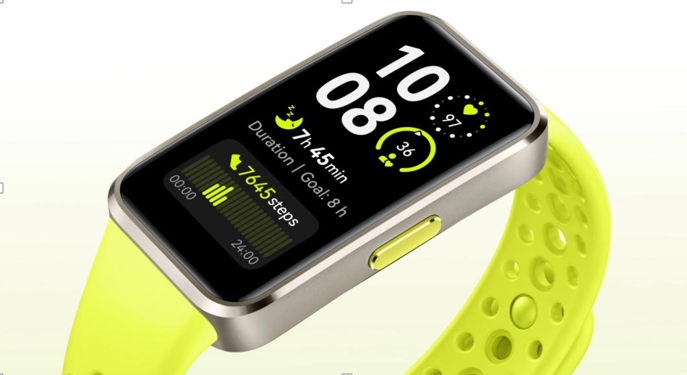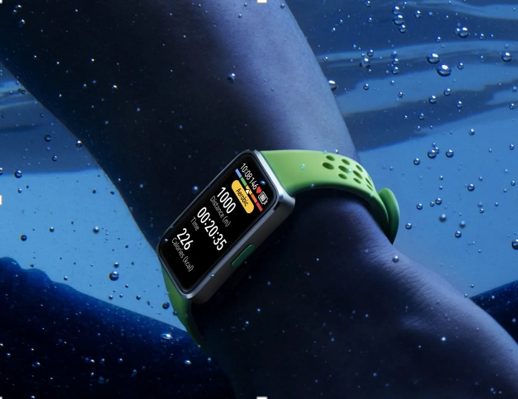The Future of Smart Bands: AI and Health Monitoring Integration

Smart bands are no longer just fitness trackers; they have evolved into comprehensive health monitoring systems. With the integration of artificial intelligence (AI), these wearable devices are rapidly advancing in their ability to track, analyze, and provide insights into our health and wellness. Devices like the Smart band have incorporated AI to offer more accurate tracking of vital health metrics such as heart rate, sleep patterns, and stress levels. This development fosters a new era of personalized healthcare, where data-driven insights lead to better lifestyle choices. Let’s explore how AI is enhancing the capabilities of smart bands and what this means for the future of wearable technology.
How AI Enhances Smart Band Health Monitoring Features
AI in Sleep Tracking and Sleep Quality Analysis
AI has significantly improved sleep tracking features in smart bands. By analyzing patterns in heart rate variability, movement, and sleep cycles, AI algorithms can provide detailed insights into sleep quality. These insights help users understand their sleep patterns better and suggest personalized improvements. Smart bands can now detect disturbances during sleeping hours, such as irregular breathing or sleep apnea, ensuring users are well-informed about their sleep health.
See also: Benefits of AI Face Swap Technology in Content Creation
Predictive Health Insights Using AI
AI algorithms in smart bands can analyze historical health data to predict future health issues or potential risks. For instance, by monitoring trends in resting heart rate, activity levels, and other vital signs, these devices can alert users to irregularities that might indicate underlying health problems. This predictive capability empowers users to take proactive steps in managing their health, potentially avoiding severe medical conditions through early intervention.
Real-Time Health Monitoring with AI Integration
Real-time health monitoring has seen a significant boost with AI integration. Smart bands equipped with AI can continuously analyze data from multiple sensors to provide live health insights. This includes monitoring heart rate, oxygen levels, and physical activity. Real-time feedback allows users to make immediate adjustments to their activities, ensuring they stay within healthy limits. For instance, athletes can monitor their physical exertion and recover promptly, reducing the risk of overtraining injuries.
The Role of Machine Learning in Fitness and Performance Tracking
Personalized Fitness Plans Using AI
AI and machine learning make it possible for smart bands to create highly personalized fitness plans. By analyzing data such as past workouts, fitness levels, and user preferences, AI generates workout routines tailored to individual needs and goals. These customized plans are more effective in helping users achieve their fitness targets. As the user progresses, the AI can adjust the difficulty and variety of exercises to match their improving capabilities.
Adaptive Activity Tracking Based on User Behavior
Activity tracking has become more adaptive with AI. Smart bands can learn from user behavior over time, recognizing patterns and adjusting tracking metrics accordingly. For example, if a user frequently engages in physical activity at certain times of the day, the smart band can prompt reminders or offer tips related to those activities. This adaptability ensures that the tracking is always relevant, keeping users motivated and informed about their daily activities.
Improving Performance with AI-Driven Analytics
Performance tracking has reached new heights thanks to AI-driven analytics. Smart bands use AI to delve deeper into performance data, offering insights that were previously inaccessible. These insights can help users understand their strengths and weaknesses, optimize their training, and achieve better performance outcomes. For athletes, this means training more efficiently and effectively, with data-backed decisions guiding their improvement.

AI and the Future of Smart Band Design
Smart Bands with AI-Powered Customization
Customization is a key trend in the wearable tech industry, driven by AI integration. Future smart bands will offer more personalized experiences, with AI adjusting settings and functions based on user behavior and preferences. This could include everything from display configurations to alert preferences, making the device truly user-centric. The result is a seamless experience that caters to individual needs, enhancing user satisfaction.
More Accurate Sensors and Wearable Tech Evolution
AI is driving the evolution of more accurate sensors in smart bands. These advanced sensors, coupled with AI algorithms, provide precise health and activity data. For instance, optical sensors for heart rate monitoring are being improved to offer greater accuracy, even during intense workouts. The evolution of wearable tech, driven by AI, ensures that users receive reliable and consistent data, making health monitoring more trustworthy.
Seamless Integration of AI in Smart Band Hardware
The future of smart band hardware lies in the seamless integration of AI. This means embedding AI capabilities directly into the device’s core components. Such integration ensures real-time processing and faster data analysis, providing users with immediate insights and feedback. The continuous advancement in microchip technology will allow more complex AI algorithms to run on wearable devices, making them smarter and more efficient.
Conclusion
The integration of AI in smart bands marks a transformative shift in how we monitor and manage our health. From enhanced sleep tracking to predictive health insights and real-time monitoring, AI empowers users with valuable information. Machine learning further personalizes fitness and performance tracking, while innovation in hardware design promises more accurate and user-friendly devices. As AI continues to evolve, smart bands will play an increasingly vital role in personal wellness, guiding us towards healthier lifestyles with precision and intelligence.





